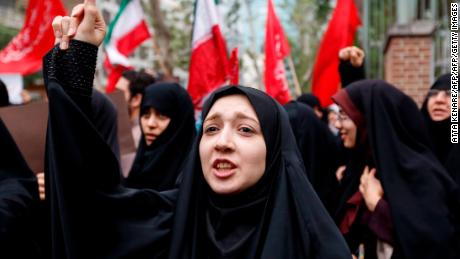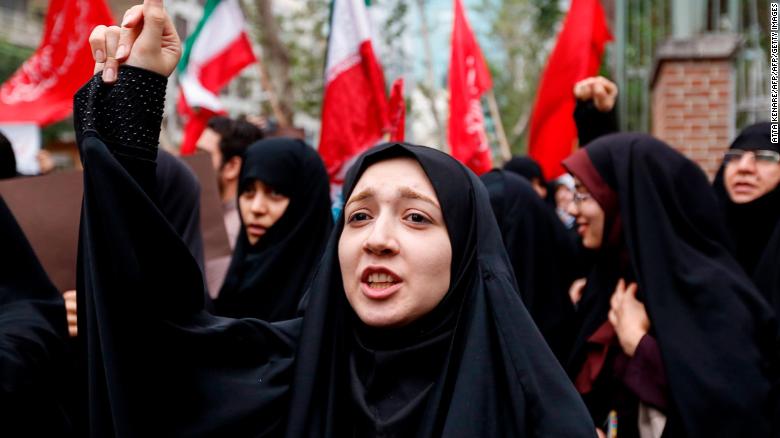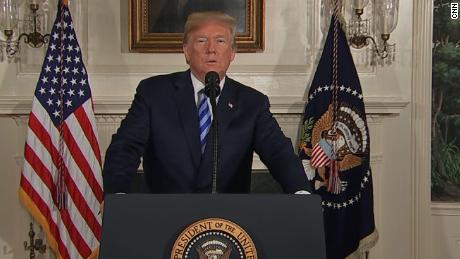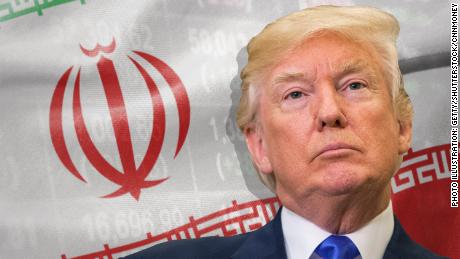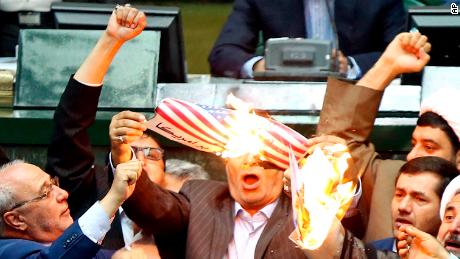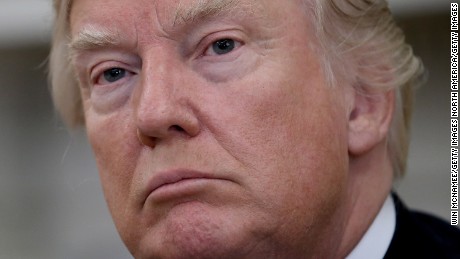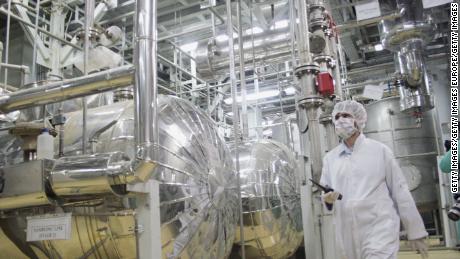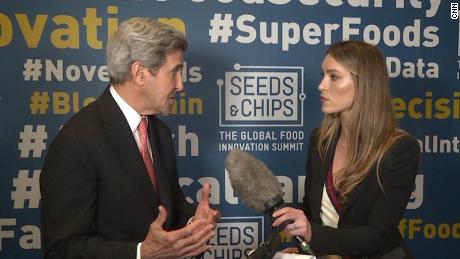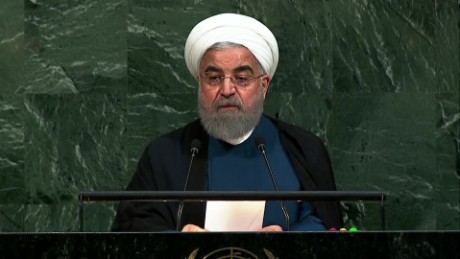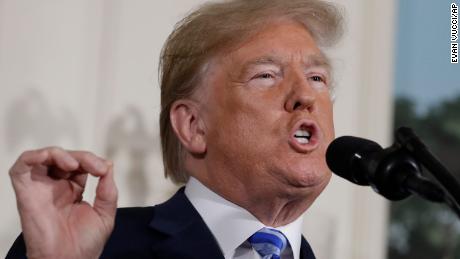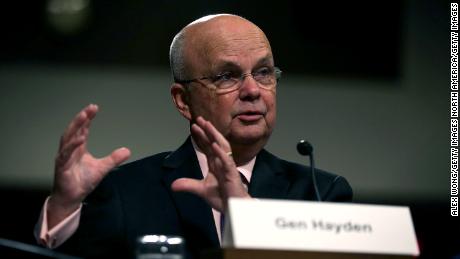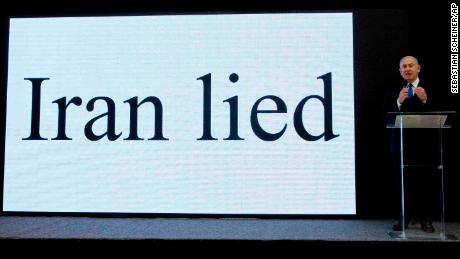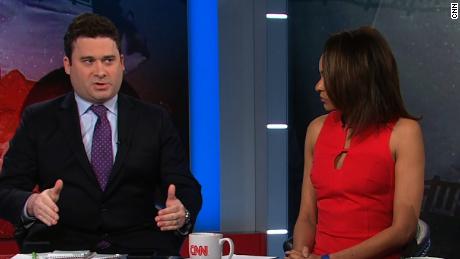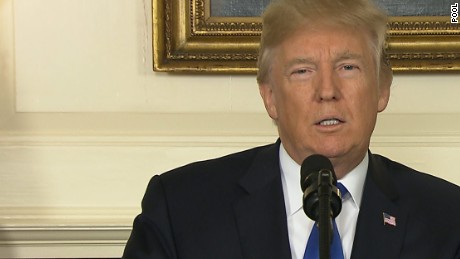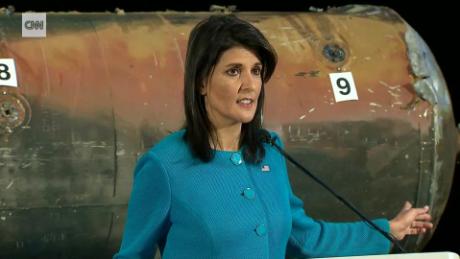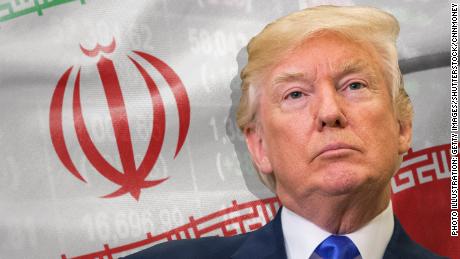(CNN)For months, leaders from France, Germany and the United Kingdom -- key signatories to the six-nation negotiating group that brokered the 2015 Obama-era Iran deal -- had tried to persuade US President Donald Trump to stay or renegotiate the deal.
But, on Tuesday afternoon, it appeared those efforts were wasted, as Trump announced he would allow sanctions to go forward on Iran, a first step in withdrawing from the Joint Comprehensive Plan of Action, known as the JCPOA.
In the announcement, Trump called it a "decaying and rotten" deal that was "an embarrassment" to him "as a citizen."
Many global leaders disagree.
French President Emmanuel Macron first responded to the announcement on Twitter, writing that "France, Germany, and the UK regret the US decision to leave the JCPOA. The nuclear non-proliferation regime is at stake."
Macron, who earlier in the day had spoken with Trump on a telephone call French sources described as "very, very disappointing," said France was committed to expanding a framework with the aim of keeping the region as stable as possible.
"We will work collectively on a broader framework, covering nuclear activity, the post-2025 period, ballistic activity, and stability in the Middle East, notably Syria, Yemen and Iraq," he said.
German Chancellor Angela Merkel, UK Prime Minister Theresa May and Macron issued a joint statement after a trilateral phone call following the announcement.
The three nations said they would "remain committed to ensuring the agreement is upheld" and would "ensure this remains the case including through ensuring the continuing economic benefits to the Iranian people that are linked to the agreement."
The statement said the Iran deal had made the world a "safer place" and urged the United States to "avoid taking action which obstructs its full implementation by all other parties to the deal."
The leaders added that they encouraged Iran to "show restraint in response to the decision by the US" and that Iran must continue to meet its own obligations of the deal.
UK Foreign Secretary Boris Johnson, who recently visited Washington in a last-minute effort to dissuade Trump from withdrawing, wrote on Twitter: "Deeply regret US decision to withdraw from the Iran nuclear deal. UK remains strongly committed to the JCPOA, and will work with E3 partners and the other parties to the deal to maintain it. Await more detail on US plan."
Russia joined in the criticism, saying it was "disappointed" but that Trump's action wasn't a shock.
"We are disappointed as we were before, so it was no surprise," Dmitry Polyansky, a deputy Russian ambassador to the United Nations, told reporters in New York.
When asked if Russia will call a UN Security Council meeting regarding the US decision, he said, "All the options are on the table."
In Tehran, Iranian President Hassan Rouhani addressed the decision on live television, saying the United States failed to live up to its international commitments under the JPCOA.
Rouhani said that the agreement was not a bilateral agreement between the United States and Iran, but rather a multilateral international agreement endorsed by the UN Security Council.
Rouhani said Iran would take a few weeks to decide how to respond to the US withdrawal, but Rouhani said he had ordered the country's "atomic industry organization" to be prepared to "start our industrial enrichment without limitations." He said Iran would abide by its commitments while it consults with the other signatories to the JPCOA.
As leaders across the world criticized the decision, Israel praised Trump's announcement.
Prime Minister Benjamin Netanyahu said in a televised address that Israel fully supports the withdrawal. He tweeted, "Thank you President Trump for your bold decision and your commitment to prevent Iran from ever getting nuclear weapons."
Defense Minister Avigdor Liberman tweeted that Trump had spoken to Iran's leaders in a clear voice and said: "Enough!" Liberman described Iran as "a dictatorship that contributes to, and makes, terror and murder around the world."
Yuli Edelstein, the speaker of the Israeli Knesset, said in a statement: "Trump's withdrawal is further proof that the Iranians never abandoned their plan to achieve a weapon of mass destruction. All other countries to the [Iran nuclear] agreement must see that -- and withdraw too, immediately."
Several US military officials told CNN there are increasing concerns Iran is on the cusp of an attack against Israel, although intelligence is not clear on when an attack could come and what form it would take, they say.
Saudi Arabia also voiced its support for Trump's decision to abandon the agreement. In a statement, the Kingdom said its previous support of the deal was based on its conviction that all possible steps should be taken to address nuclear proliferation.
However, it said the easing of sanctions had allowed the Iranian regime to "continue its destabilizing activities in the region" and that it supported their resumption.
